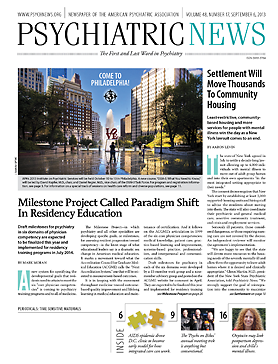The term mental retardation was used in DSM-IV. That term is no longer used internationally or in U.S. federal legislation. DSM-5 uses the diagnostic term intellectual disability (intellectual developmental disorder) to reflect deficits in cognitive capacity beginning in the developmental period. These disorders include language disorder (which combines DSM-IV expressive and mixed receptive-expressive language disorders), speech-sound disorder, and childhood-onset fluency disorder, which are newly named from DSM-IV phonological disorder and stuttering, respectively.
Also included in DSM-5 is social communication disorder, a new disorder that describes persistent difficulties in pragmatics or the social uses of verbal and nonverbal communication. DSM-5 includes a new name for the category that now encompasses autism spectrum disorder, which includes autistic disorder (autism), Asperger’s disorder, childhood disintegrative disorder, and pervasive developmental disorder not otherwise specified. Attention-deficit/hyperactivity disorder diagnostic criteria in DSM-5 are similar to the DSM-IV criteria. The same 18 symptoms are used as in DSM-IV and continue to be divided into two symptom dimensions (inattention and hyperactivity/impulsivity), of which at least six symptoms of one dimension are required for diagnosis.
The questions below are from
DSM-5 Self-Exam Questions: Test Questions for the Diagnostic Criteria, which may be preordered from American Psychiatric Publishing at
http://www.appi.org/SearchCenter/Pages/SearchDetail.aspx?ItemId=62467. The answers and rationales are posted at
http://www.psychnews.org/pdfs/DSM-5_Self_Examination_QandA_11.pdf. The book, available in October, contains 500 questions for all the categories of psychiatric disorders and includes Section III. The questions were developed under the leadership of Philip Muskin, M.D., a professor of clinical psychiatry at Columbia University College of Physicians and Surgeons. APA members may purchase the book at a discount.
1. A 7-year-old boy in second grade displays significant delays in his ability to reason, problem-solve, and learn from his experiences. He has been slow to develop reading, writing, and mathematics skills in school. All through development, these skills lagged behind peers’, though he is making slow progress. These deficits significantly impair his ability to play in an age-appropriate manner with peers and to begin to acquire independent skills at home. He requires ongoing assistance with basic skills (dressing, feeding, and bathing himself, doing any type of schoolwork) on a daily basis. Which DSM-5 diagnosis best fits this boy?
a) child- onset major neurocognitive disorderb) specific learning disorderc) intellectual development disorder, moderated) social communication disordere) autistic spectrum disorder
2. A 7-year-old girl presents with a history of normal language skills (vocabulary and grammar intact) but is unable to use language in a socially pragmatic manner to share ideas and feelings. She has never made good eye contact and has difficulty reading social cues. Consequently, she has had difficulty making friends, which is further complicated by her being somewhat obsessed with cartoon characters, which she repetitively scripts. She tends to excessively smell objects, and it is difficult for her to get dressed, as she insists on wearing the same shirt and shorts every day, regardless of the season. These symptoms have dated from early childhood and cause significant impairment in her functioning. According to DSM-5, what diagnosis would she receive?
a) Asperger’s disorderb) autism spectrum disorderc) pervasive developmental disorder NOSd) social communication disordere) Rett syndrome
3. The parents of a 15-year-old female 10th grader believe that she should be doing better in high school, given how bright she seems, and the fact that she received mostly A’s through eighth grade. Her papers are handed in late, and she makes careless mistakes on examinations. They have her tested, and the results are as follows: Verbal IQ 125, Perceptual Reasoning Index of 122, Full Scale IQ 123, Working Memory Index in the 55 percent; Processing Speed Index in the 50 percent; weaknesses in executive function is noted. She has a psychiatric evaluation during which she reports a long history of failing to give close attention to details, difficulty sustaining attention while in class or doing homework, failing to finish chores and tasks, and significant difficulties with time management, planning, and organization. She is forgetful, often loses things, and is easily distracted. She has no history of restlessness or impulsivity and is well liked by her peers. What is her most likely DSM-5 diagnosis?
a) adjustment disorder with anxietyb) specific learning disorderc) attention-deficit/hyperactivity disorder, predominantly inattentived) developmental coordination disordere) major depressive disorder ■
